Related Research Articles
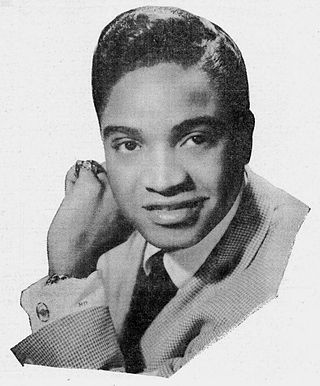
Jack Leroy Wilson Jr. was an American singer and performer of the 1950s and 60s. He was a prominent figure in the transition of rhythm and blues into soul. Nicknamed "Mr. Excitement", he was considered a master showman and one of the most dynamic singers and performers in soul, R&B, and rock and roll history.

"You Don't Know Me" is a song written by Eddy Arnold and Cindy Walker in 1955. "You Don't Know Me" was first recorded by Arnold that year and released as a single on April 21, 1956, on RCA Victor. The best-selling version of the song is by Ray Charles, who took it to number 2 on the Billboard Hot 100 chart in 1962, after releasing the song on his number 1 album Modern Sounds in Country and Western Music. The first version of the song to make the Billboard charts was by Jerry Vale in 1956, peaking at number 14 on the pop chart. Arnold's version charted two months later, released as an RCA Victor single, 47–6502, backed with "The Rockin' Mockin' Bird", which reached number 10 on the Billboard country chart. Cash Box magazine, which combined all best-selling versions at one position, included a version by Carmen McRae that never appeared in the Billboard Top 100 Sides listing.
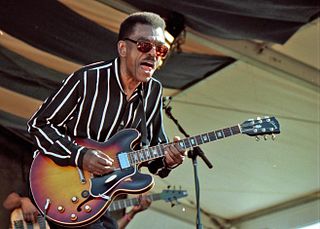
Sylvester Johnson was an American blues and soul singer, musician, songwriter and record producer. His most successful records included "Different Strokes" (1967), "Is It Because I'm Black" (1969) and "Take Me to the River" (1975).

"Somebody Loves Me" is a popular song, with music written by George Gershwin, and lyrics by Ballard MacDonald and Buddy DeSylva. The song was published in 1924 and featured in George White's Scandals of 1924.
"If You Are But a Dream" is a popular song published in 1942 with words and music by Moe Jaffe, Jack Fulton and Nat Bonx. The melody is based on Anton Rubinstein's "Romance in E flat, Op. 44, No. 1," popularly known as "Rubinstein's Romance".
"Maybe You'll Be There" is a popular song composed by Rube Bloom, with lyrics written by Sammy Gallop. The song was published in 1947.
"Don't Blame Me" is a popular song with music by Jimmy McHugh and lyrics by Dorothy Fields. The song was part of the 1932 show Clowns in Clover and was published in 1933. Popular versions that year were recorded by: Ethel Waters, Guy Lombardo, and Charles Agnew.
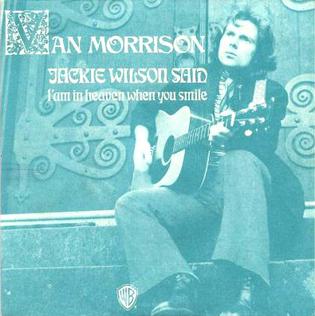
"Jackie Wilson Said (I'm in Heaven When You Smile)" is a song written and performed by Van Morrison and featured as the opening track on his sixth studio album, Saint Dominic's Preview. It was released by Warner Bros. in July 1972 as the first of three singles from the album and charted at number sixty-one on the US Billboard Hot 100. Both the music and lyrics are inspired by rhythm and blues singer Jackie Wilson and his song "Reet Petite", which is directly quoted in the song.
Howard Stafford Huntsberry is an American R&B singer, drummer/percussionist, and actor from Pacoima, California.

There Are But Four Small Faces is a studio album by British rock group Small Faces, released in 1968 through Immediate Records and distributed by CBS Records. It was the band's first LP release in the United States, and is a modified version of the UK album Small Faces, which came out the previous year. There Are But Four combines tracks from the UK album with the standalone singles "Itchycoo Park", "Here Come the Nice" and "Tin Soldier", and their respective B-sides.
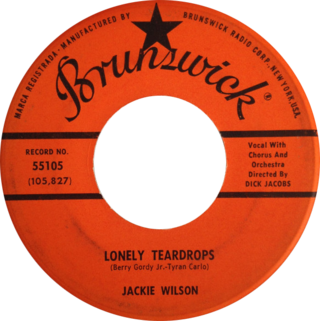
"Lonely Teardrops" is a song written by Berry Gordy Jr., Gwen Gordy and Roquel "Billy" Davis, first recorded and released as a single in 1958 by R&B singer Jackie Wilson, on the Brunswick label. The single was commercially successful, reaching the top ten on the Billboard Hot 100, and number-one on the R&B chart. It is ranked as the 57th biggest U.S. hit of 1959.
"Shake a Hand" is a 1953 song written by the trumpeter and bandleader Joe Morris and originally recorded by Faye Adams, whose version stayed number one on the U.S. Billboard R&B chart for nine weeks.

The Chi-Lites are an American R&B/soul vocal quartet from Chicago, Illinois, United States. Forming at Chicago's Hyde Park High School in 1959, The group's original lineup consisted of singers Robert Lester, Eugene Record, Creadel Jones, Clarence Johnson, Burt Bowen, Eddie Reed and Marshall Thompson.

"My Way" is a song co-written and recorded by Eddie Cochran. It was recorded in January 1959 and released posthumously as a single on Liberty Records in April 1963. In the UK the single reached number 23 on the charts.
"Meet Mister Callaghan" is a 1952 song written by Eric Spear and performed by Les Paul in a hit recording.
"Please, Mr. Sun" is a song written by Ray Getzov and Sid Frank and performed by Johnnie Ray featuring The Four Lads and the Jimmy Carroll Orchestra. It reached number 6 on the U.S. pop chart in 1952. It was featured on his 1955 album I Cry for You.
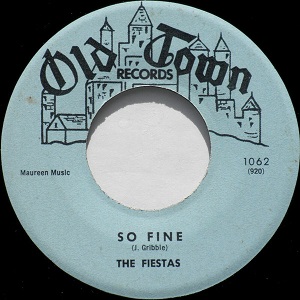
"So Fine" is a song written by Johnny Otis and performed by The Fiestas. It reached #3 on the U.S. R&B chart and #11 on the U.S. pop chart in 1959.
"With These Hands" is a song written by Benny Davis and Abner Silver and performed by Eddie Fisher featuring Hugo Winterhalter and His Orchestra. It reached number 7 on the U.S. pop chart in 1953.
"Lonely Blue Boy" is a song written by Ben Weisman and Fred Wise and performed by Conway Twitty. It reached #6 on the U.S. pop chart and #27 on the U.S. R&B chart in 1960. It was featured on his 1960 album Lonely Blue Boy.

"Is It Because I'm Black" is a song recorded in 1969 by blues and soul singer Syl Johnson. It was co-written by Johnson, record producer Jimmy Jones, and Glenn Watts. The recording, issued on the Twinight label in September 1969, reached number 11 on the Billboard R&B chart, and number 68 on the Hot 100.
References
- ↑ "Jackie Wilson, "That's Why (I Love You So)" Chart Positions" . Retrieved August 23, 2018.
- ↑ "Jackie Wilson, Lonely Teardrops". Discogs . February 1959. Retrieved August 23, 2018.
- ↑ "Billboard Top 100 - 1959". Archived from the original on January 2, 2014. Retrieved January 13, 2011.
- ↑ "Steve Goodman, High and Outside". Discogs . 1979. Retrieved August 23, 2018.
- ↑ "Syl Johnson, Complete Twinight Records 45s". Discogs . Retrieved August 23, 2018.
- ↑ "John Eddie and The Front Street Runners, Live at the London Victory Club '81". Discogs . Retrieved August 23, 2018.